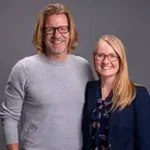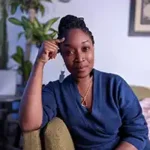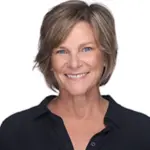Emily and Erik Orton, authors of “Seven at Sea” and co-founders of The Awesome Factory, share how they left their life in New York City to sail the world with their five children. They share how the question, “What could go right?” lead them to adopt a mindset focused on potential success and growth, rather than being held back by the fear of failure. On their journey, they embraced mentorship and practiced gratitude while navigating challenges together, strengthening their family and overcoming fears. Their story illustrates how being open to feedback, building leadership skills, and focusing on possibility can lead to personal and professional development.
Continue readingSeasons: 5
Leading a Team of Mavericks
Sean Murray, a leadership expert and author, delves into the crucial role of feedback in driving organizational growth. Drawing on the experiences of the 1984 U.S. men’s gold-winning volleyball team, he illustrates how trust and collaboration were cultivated through a challenging Outward Bound experience. Murray emphasizes that true leadership is about guiding teams to embrace challenges, fostering an environment where vulnerability and open communication thrive. The conversation highlights how such an approach not only builds resilient teams but also enhances their ability to collaborate and solve problems effectively.
Continue readingOperate in Your Strengths
Yvonne Druyeh Dood, a life and business coach, explains how she learned to “operate in your strengths” without sacrificing personal well-being or falling into the martyrdom mindset often associated with passionate work. She shares how feedback helped her recognize the importance of integrity and alignment in her pursuits. Her approach, which integrates business strategy with a holistic understanding of personal values and strengths, supports entrepreneurs in achieving both professional success and personal fulfillment. Through her Authentic Hustle workshops, she emphasizes finding balance, operating with ease, and achieving sustainability in work and life.
Continue readingIntentional Curiosity
Robert Avinger shares insights on the critical role of intentional curiosity when receiving feedback, even when it’s challenging or poorly delivered. He recounts personal stories that illustrate the impact of feedback on his career, both positive and negative, emphasizing the importance of how we respond to it. The conversation also touches on his experience developing a career conversations toolkit and his transition to running his own consulting firm, Avinger Consulting, which focuses on fostering strong relationships within organizations.
Continue readingRising Together: A Path Forward
Sally Helgesen discusses how to create more inclusive workplaces by exploring concepts from her book “Rising Together.” She emphasizes behaviors over biases and how to manage emotional triggers constructively. She highlights the importance of extending “the benefit of goodwill” rather than “the benefit of the doubt” in professional interactions to build effective and comfortable relationships across diverse groups. She also delves into the challenges of maintaining authenticity while being open to feedback and the evolving nature of leadership habits.
Continue readingHow Women Rise
Sally Helgesen, an expert on women’s leadership, discusses her book “How Women Rise” and effective strategies for women to rise in the workplace. Sally emphasizes how feedback should be based on recognizing strengths and provides insights into overcoming common habits that hinder women’s career advancement. She shares her observations on the evolution of workplace dynamics throughout her career. The conversation also highlights the importance of inclusive behaviors and how women can actively contribute to creating more inclusive work environments.
Continue readingDon’t Accept Assumptions
Stephanie Allen, a strategic CEO advisor and fractional COO, reminds us about the need to ask if we can give feedback. If the other person is not ready to receive it, we’re likely wasting time and creating unnecessary conflict. She also reminds us that feedback is a gift, and sometimes it’s a gift we didn’t think we needed. Feedback loops are important; while we can’t control people, we can influence them. One key aspect to all of this is, “Don’t accept assumptions.” Leaders need to clarify and verify.
Continue readingBuilding a Leadership Development Program
Host Troy Blazer welcomes Dr. Michelle Thackray to Simply Feedback, where they delve into the significance of feedback within organizational structures, particularly focusing on building a leadership development program. Dr. Thackray shares insights from her career journey, emphasizing the pivotal role feedback played in redirecting her career path and guiding her towards leading transformative initiatives. Highlighting the importance of co-creation and pilot programs, she discusses her efforts at Rice University to implement a leadership development program aimed at fostering a culture of feedback and continuous improvement. Their discussion underscores the value of feedback in guiding individuals through career transitions, driving organizational success, and nurturing a culture of growth and excellence.
Continue readingSystemic Team Coaching
Discuss valuable insights on leadership development and feedback with Andria Gillis, an experienced executive coach specializing in systemic team coaching. Dive into practical strategies for fostering open communication, enhancing emotional intelligence, and driving organizational transformation in this podcast conversation. Join Andria as she shares her expertise and insights to empower leaders and teams.
Continue readingIs This How You Want to Be Perceived?
Diane Hazum is an experienced Leadership and Executive Coach with over twenty years of experience. She emphasizes the significance of understanding how one is perceived by others, the impact of feedback on career development, and insights into professional development.
Continue reading







